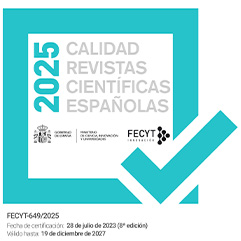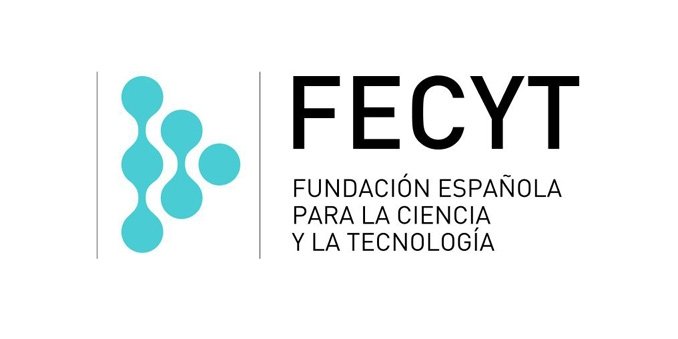The use of podcast in Spanish Economy
DOI:
https://doi.org/10.17561/ree.n1.2024.8210Keywords:
teaching, learning podcast, Spanish Economy, perceptionAbstract
Information and Communication Technologies (ICT) applied to teaching make conventional teaching activities in the classroom more dynamic and reinforce traditional classes. Within this framework, the podcast represents a tool with great potential for teaching innovation and, therefore, this paper focuses on analysing the use of the learning podcast group works in the subject of Spanish Economy for the degree in Business Administration and Management and the double degree in this same training with Computer Engineering of the Complutense University of Madrid. Its application has been carried out in two groups with different characteristics and very positive results have been obtained. These are demonstrated by analysing the marks obtained by the students for the activity, with an average around 8/10 for both groups, and on the other hand, by evaluating the students' perception of the activity, for which two questionnaires have been developed: an initial one -before carrying out the activity- and a final one -once the activity has finished-.
Downloads
References
Almendingen, K.; Torbjørnsen, A.; Sparboe-Nilsen, B.; Kvarme, L.G.; Saltyte Benth, J. (2021). Small group student-produced podcasts were favoured as assignment tool for large-scale interprofessional learning: An exploratory study among health, social care, and teacher education program. In Frontiers in Education (Vol. 6, p. 622716). Frontiers Media SA.
Arrieta, X.; Delgado, M. (2006). Tecnologías de la información en la enseñanza de la física de educación básica. Enlace, 3 (1), 63–76.
Chaparro Domínguez, M.A. (2022). El podcast como herramienta de innovación docente. Universidad Complutense de Madrid. Curso de formación para el profesorado.
Delgado, M.; Arrieta, X.; Riveros, V. (2009). Uso de las TIC en educación, una propuesta para su optimización. Omnia, 15 (3), 58–77. ISSN: 1315-8856
Galeana, L. (2006). Aprendizaje basado en proyectos. Revista Ceupromed, 1 (27), 1–17.
Gümüs, M.M.; Kayhan, O.; Kukul, V.; Korkmaz, Ö. (2023). Preparing teachers to integrate technology in education according to SQD model: scale development and validation. Education and Information Technologies, 1–31. https://doi.org/10.1007/s10639-023-11978-0
Lim, K.Y. (2006). Now hear this–exploring podcasting as a tool in geography education. In Geographic Education Symposium of the International Geographic Union Commission, Brisbane, Australia.
Lodico, M.G.; Spaulding, D.T.; Voegtle, K.H. (2010). Methods in educational research: From theory to practice. San Francisco, CA: Jossey-Bass.
Mensah, R.O.; Quansah, C.; Oteng, B.; Nettey, J.N.A. (2023). Assessing the effect of information and communication technology usage on high school student’s academic performance in a developing country. Cogent Education, 10 (1), 2188809. https://doi.org/10.1080/2331186X.2023.2188809
Mykhnenko, V. (2016). Cui bono? On the relative merits of technology-enhanced learning and teaching in higher education. Journal of Geography in Higher Education, 40 (4), 585–607. https://doi.org/10.1080/03098265.2016.1217832
Osorio González, A.; Vitar Badilla, S. (2010). El uso de las TIC en el aprendizaje de matemática la práctica en el colegio" Infantes de O'Higgins" de Rancagua. Universidad Andrés Bello. Tesis Doctoral.
Prensky, M. (2005). Digital natives, digital immigrants. Gifted, 135, 29–31. ISSN: 1038-5266
Ralph, J.; Head, N.; Lightfoot, S. (2010). Pol-casting: The use of podcasting in the teaching and learning of politics and international relations. European Political Science, 9, 13–24. https://doi.org/10.1057/eps.2009.38
Ramos García, A.M.; Caurcel Cara, M.J. (2009). Cuestionario de valoración de la utilidad de los podcast como herramienta de enseñanza-aprendizaje. Proyecto de Innovación Docente “La tarea colaborativa y las nuevas tecnologías para la mejora de la competencia oral en LE”, Universidad de Granada.
Ramos García, A.M.; Caurcel Cara, M.J. (2011). Los podcast como herramienta de enseñanza-aprendizaje en la Universidad. Profesorado. Revista de Currículum y Formación de Profesorado, 15 (1), 151–162. ISSN: 1138-414X
Rodriguez Giles, A. I. (2021). Los podcasts en la enseñanza universitaria. Aprender para enseñar. Innovación docente, Formación Online y TIC en la Universidad de Deusto. https://blogs.deusto.es/aprender-ensenar/los-podcasts-en-la-ensenanza-universitaria/
Rogers-Estable, M. (2014). Web 2.0 use in higher education. European Journal of Open, Distance and E-Learning (EURODL), 17 (2), 130–142.
Salinas, J. (2004). Innovación docente y uso de las TIC en la enseñanza universitaria. RUSC, Universities & Knowledge Society, 1 (1). ISSN: 1698-580X
Tondeur, J.,;Van Braak, J.; Sang, G.; Voogt, J.; Fisser, P.; Ottenbreit-Leftwich, A. (2012). Preparing pre-service teachers to integrate technology in education: A synthesis of qualitative evidence. Computers & Education, 59 (1), 134–144. https://doi.org/10.1016/j.compedu.2011.10.009
Verdú, M. (1998). Aplicación de Internet como nuevo espacio de formación y comunicación para los centros de primaria y secundaria. Universidad de Valladolid. Tesis Doctoral.
Published
Issue
Section
License
Copyright (c) 2024 Sara Fernández, Claudia García-García, Celia Torrecillas

This work is licensed under a Creative Commons Attribution 4.0 International License.
- Authors maintain the copyright, but they guarantee the journal its right for publication, that is under Creative Commons Licence, permitting others share the work, whereas clearly indicating the author and the first publication of the journal.
- Authors could adopt non-exclusive licence agreements for delivering the published version, whereas clearly indicating the first publishing in Revista de Estudios Empresariales. Second Era.
- Authors are encouraged to spread their works through Internet before and during the sending process, in order to make interesting scientific discussions that could increase the cites of the published work (Open Citation Project).
Revista de Estudios Empresariales. Second Era, uses PKP Preservation Network (PN).




























